5 Best CRM With Inventory Management (2025)

Have you found the best CRM with inventory management to grow your business? Also cheap crm software
Affordable CRM Software For Small Business
In this comprehensive guide, we’ll explore the top CRM with inventory management features to help you make an informed decision for your business in 2024.
| CRM System | Best For |
|---|---|
| UpKeep | Mobile-first maintenance |
| Zoho Inventory | Multi-channel selling and order management |
| Brightpearl | Automation in multi-channel e-commerce operations |
| Vtiger | Centralized and automated inventory management |
| Cin7 | Connected inventory performance across multiple channels |
| Katana | Production management for manufacturers |
| CRM Runner | Field service and office management integration |
What is CRM With Inventory Management?
CRM and inventory management combine customer relationship management (CRM) functionalities with inventory management capabilities. This integration allows businesses to manage customer interactions and inventory levels within a single platform. Here are some benefits:
- Improved Efficiency
- Enhanced Customer Experience
- Better Inventory Control
- Informed Decision-Making
Best CRM with Inventory Management Solutions for 2024:
Here are the top CRMs for inventory management.
Salesforce: Inventory Management CRM
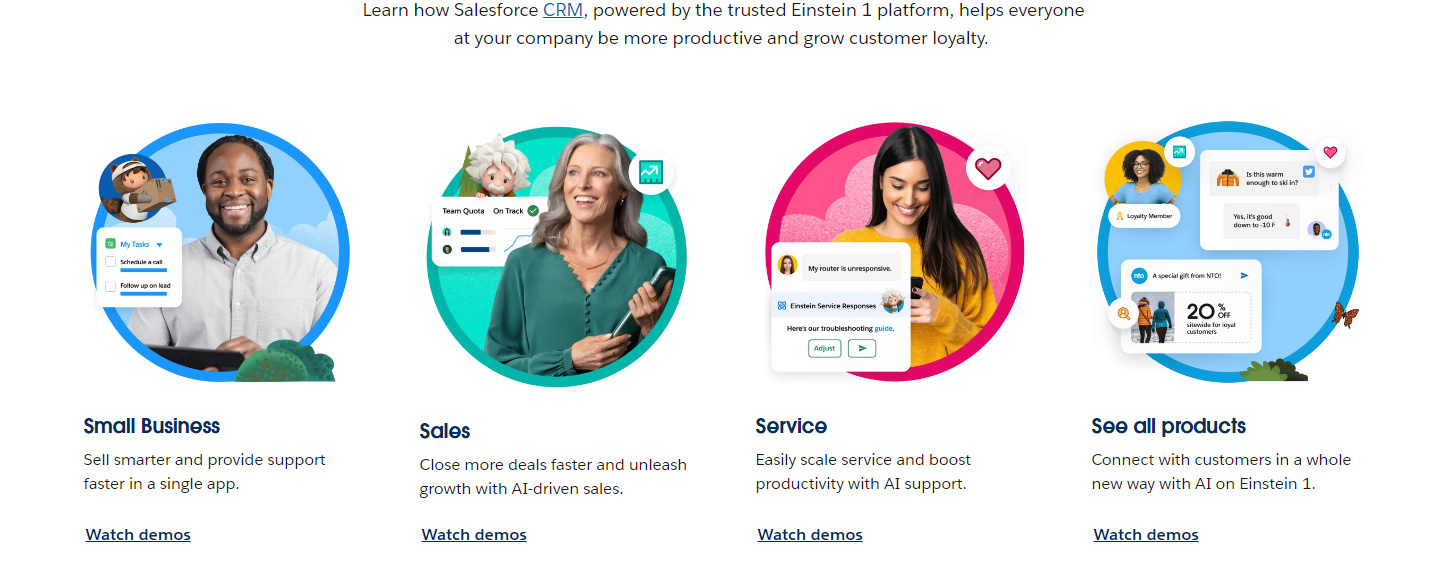
Salesforce remains a leader in the CRM space, offering robust inventory management capabilities through its Salesforce Inventory Management module. With features such as real-time inventory tracking, order management, and forecasting, Salesforce CRM empowers businesses to streamline sales and inventory operations effectively.
Pros and cons of Salesforce:
| Pros | Cons |
|---|---|
| Seamless integration between | Costly setup |
| Real-time inventory tracking | Steep learning curve |
| Customizable reporting tools | Dependency on stable Internet connection |
HubSpot CRM and Inventory Management Software
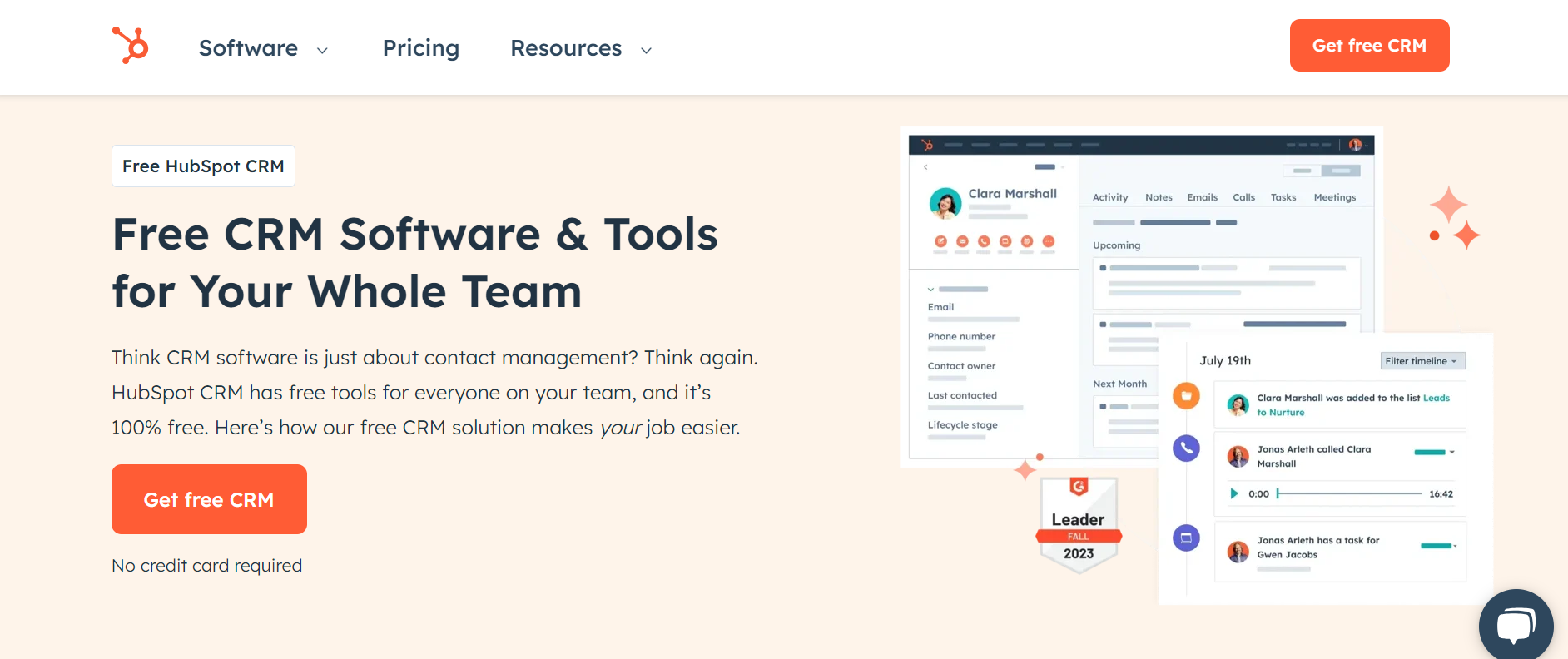
HubSpot’s all-in-one CRM platform includes inventory management functionality, making it an attractive option for businesses seeking a user-friendly solution. Hubspot CRM offers features like product catalog management, order tracking, and integration with e-commerce platforms, allowing for seamless inventory control alongside customer relationship management.
HubSpot Reviews, Product, Price and Alternative
Pros and cons of HubSpot CRM:
| Pros | Cons |
|---|---|
| User-Friendly Interface | Limited Advanced Features |
| All-in-One Platform | Pricing for Additional Features |
| Free Version Available | Integration Challenges |
Zoho Inventory Management CRM:
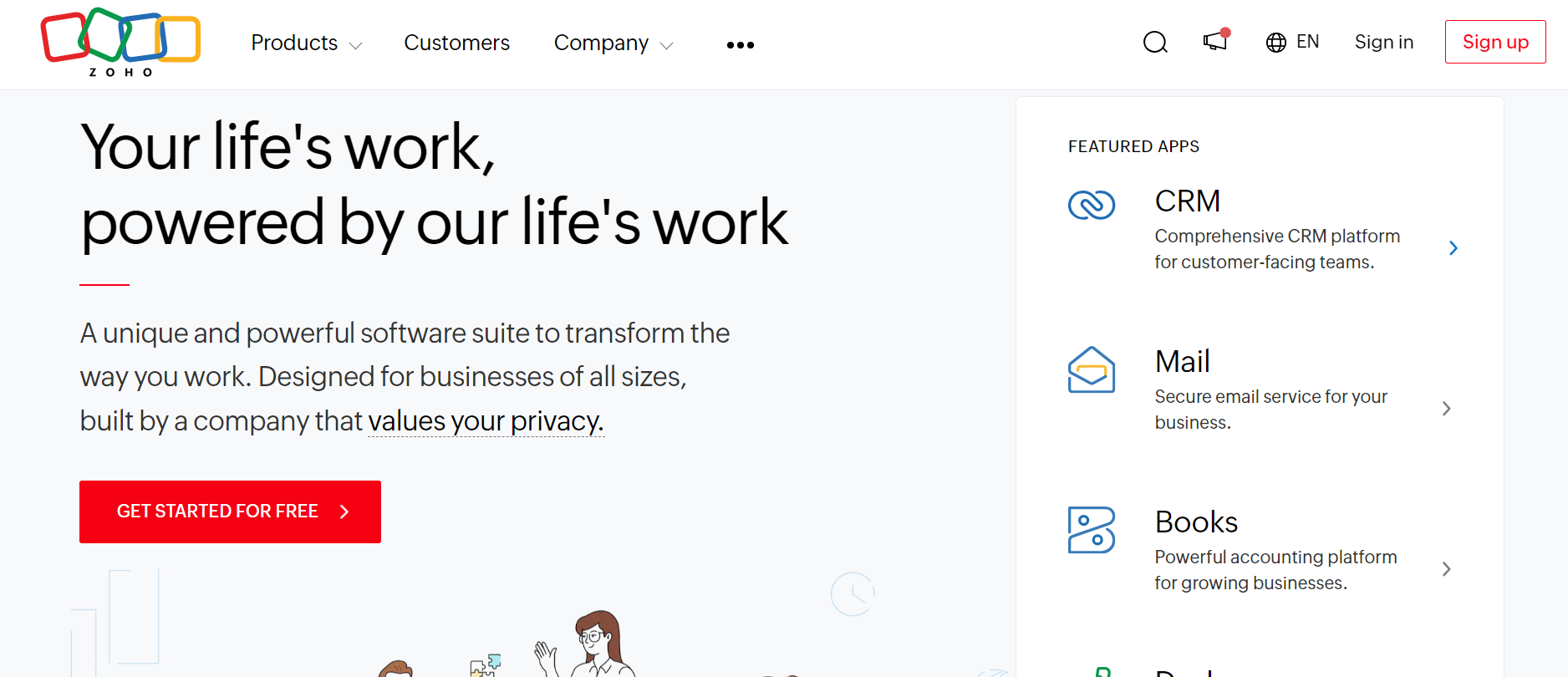
Zoho CRM Plus is a comprehensive suite of business applications that includes CRM, inventory management, and more. zoho CRM Plus offers features such as warehouse management, purchase order processing, and inventory optimization tools, making it a versatile solution for businesses of all sizes.
Pros and cons of Zoho CRM:
| Pros | Cons |
|---|---|
| Comprehensive Features | Complex Setup |
| Customization Options | Integration Challenges |
| Scalability | Learning Curve |
Monday.com– Inventory CRM
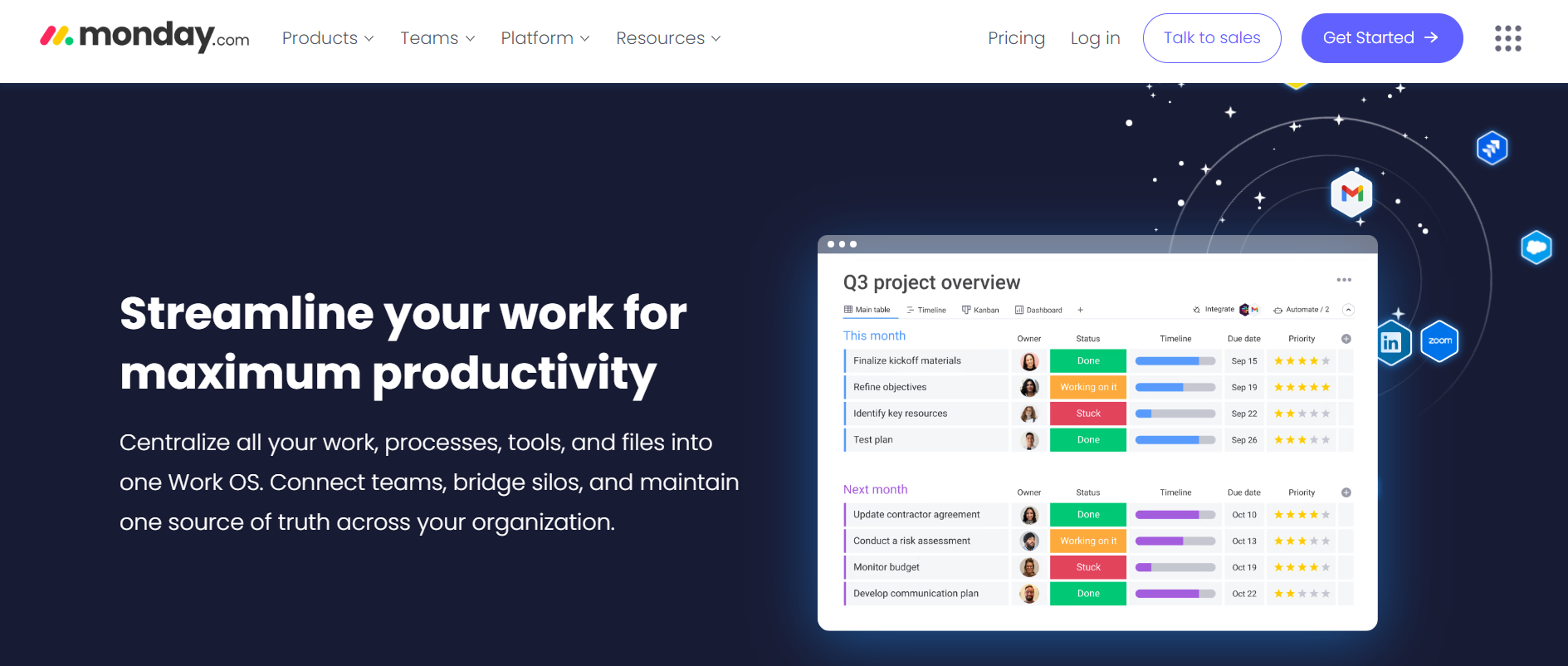
Monday.com, known for its versatile project management capabilities, offers a robust free plan that can be utilized for inventory management purposes. Here are some pros and cons of using Monday.com as an inventory management solution:
Pros and cons of Monday.com:
| Pros | Cons |
|---|---|
| Intuitive Interface | Limited Features |
| Customizable Workflows | Integration Limitations |
| Collaboration Features | User Limitations |
Odoo CRM:
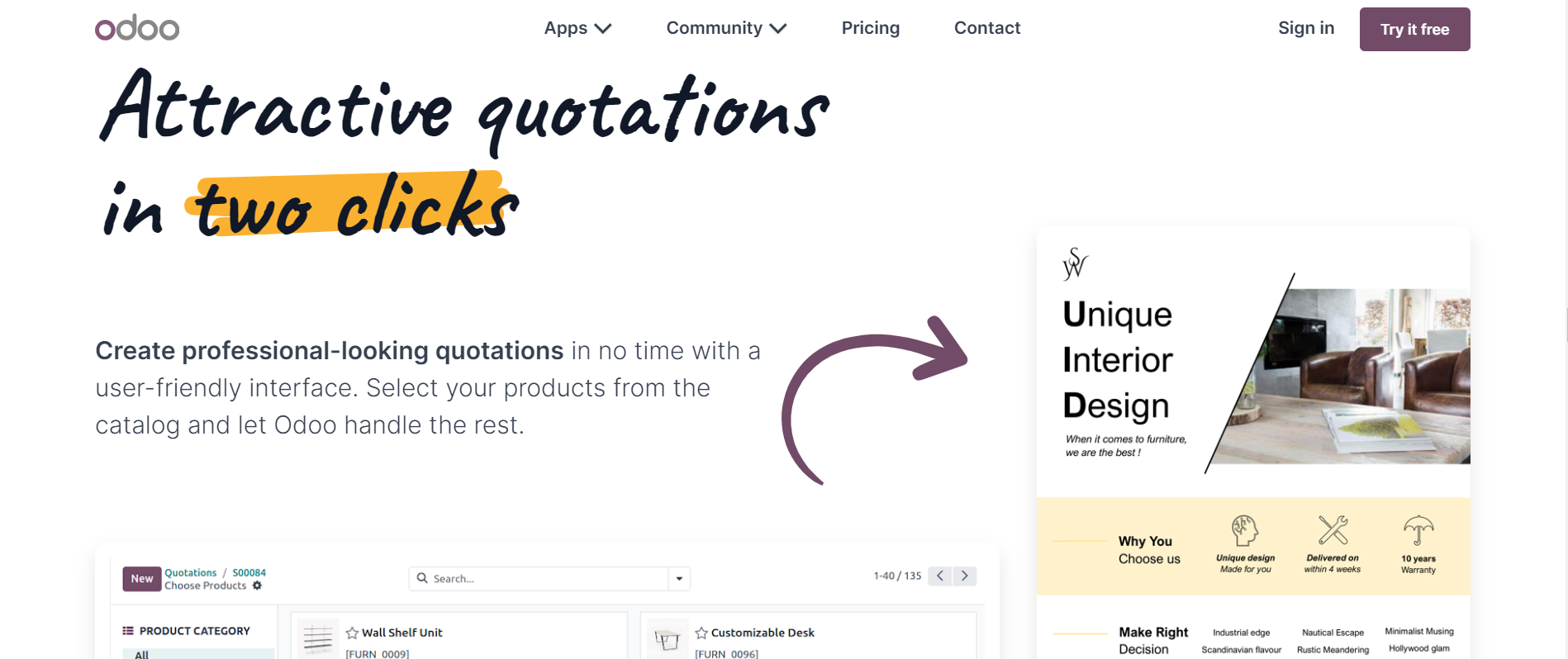
Odoo offers a customizable CRM platform with integrated inventory management modules. With features such as barcode scanning, serial number tracking, and automated reordering, Odoo CRM enables businesses to streamline inventory operations while effectively managing customer relationships.
Pros and cons of Odoo CRM:
| Pros | Cons |
|---|---|
| Customizable and modular | Learning Curve |
| Integrated Solution | Limited Customer Support |
| Open-source and Community-driven | Scalability Challenges |
How To Choose Right Inventory Management Software?
- Scalability: Ensure that the chosen CRM platform can scale with your business as it grows, accommodating increasing customer data and inventory volumes.
- Integration Capabilities: Look for a CRM solution that seamlessly integrates with other essential business applications such as accounting software, e-commerce platforms, and ERP systems.
- User-Friendly Interface: Opt for a CRM platform with an intuitive interface and easy navigation to facilitate user adoption and minimize training requirements for your team.
- Customization Options: Choose a CRM solution that offers flexibility and customization options to tailor the system to your specific business requirements and workflows.
- Support and Maintenance: Consider the availability of technical support, software updates, and ongoing maintenance services provided by the CRM vendor to ensure smooth operation and timely resolution of any issues.
Conclusion:
In today’s competitive business landscape, leveraging a CRM with integrated inventory management capabilities is essential for driving operational efficiency, improving customer satisfaction, and maximizing profitability.
By carefully evaluating the features, scalability, and suitability of various CRM platforms, businesses can select the best solution to meet their unique needs and propel their growth in 2024 and beyond.
Frequently Asked Questions
What is the best inventory management software?
Determining the “best” inventory management software depends on your specific business needs, industry, budget, and scalability requirements. Some popular options include NetSuite, Fishbowl, Zoho Inventory, and QuickBooks Commerce. It’s essential to evaluate features such as real-time tracking, order management, reporting, and integration capabilities before making a decision.
What does inventory management software do?
Inventory management software helps businesses track, manage, and organize their inventory levels and processes. It typically includes features such as inventory tracking, order management, barcode scanning, automated replenishment, forecasting, reporting, and integration with other business systems like accounting and CRM.
What are the types of inventory management software?
Inventory management software comes in different types, including on-premise software, cloud-based software, industry-specific software, standalone software, and integrated suites.
What is the best way to keep track of inventory?
Best practices for keeping track of inventory include implementing barcode or RFID systems, conducting regular physical counts, utilizing inventory management software, adopting inventory costing methods, and establishing clear inventory management policies.
How can you improve inventory management?
Improving inventory management involves optimizing inventory levels, implementing demand forecasting techniques, streamlining procurement processes, utilizing technology, and providing employee training.
How do you implement an inventory management system?
Implementing an inventory management system entails assessing current processes, defining goals, selecting suitable software, planning implementation, rolling out gradually, and monitoring performance for adjustments.
Does CRM have inventory management?
Not all CRMs offer built-in inventory management features, as their primary focus is on customer relationship management. However, some CRMs do have integrations or add-ons to manage inventory, allowing businesses to track stock levels, orders, and supply chains within the same system.
What is customer-based inventory management?
Customer-based inventory management is a strategy that aligns inventory levels based on customer demand and purchasing patterns. It ensures businesses keep enough stock to meet customer needs without overstocking, enhancing efficiency and customer satisfaction.
Can Salesforce be used for inventory management?
Salesforce does not have native inventory management features, but it can be integrated with third-party apps like Fishbowl, TradeGecko, or others available on the Salesforce AppExchange to handle inventory tasks.
Can a CRM integrate inventory management into a shared database?
Yes, many CRMs can integrate inventory management systems into a shared database. This helps sync customer data with stock levels, streamlining order fulfillment, and tracking.


